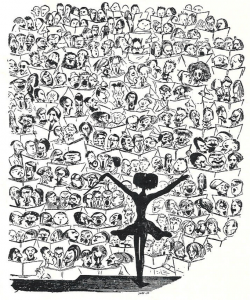- Guest editors: Ismo Kantola, University of Turku, Turku, Finland and Mihai Stelian Rusu, Babeș-Bolyai University, Cluj-Napoca, Romania
- Deadline for manuscript submission: February 15th, 2016
- Send manuscripts at: compaso@compaso.eu
Celebration was at the nascent core of the emerging sociological discipline at the turn of the 20th century. It was Durkheim’s seminal insight on the supreme importance of rituals in integrating the social body, masterfully articulated in his sociological forays into The Elementary Forms of Religious Life (1995) [1912], that placed the study of holidays in the very center of sociological focus. But after such a fulminant start, postwar sociology regrouped across the Atlantic lost its interest in the nature of celebration. As Amitai Etzioni (2000) has pointed out, neither the index of the sixteen volumes of International Encyclopedia of Social Sciences (1968) nor that of the flagship American journals American Sociological Review and American Journal of Sociology between 1975 and 1995 mention the term “holiday.” However, after a long and undeserved hiatus, celebration is making a comeback in sociological theory. Unsurprisingly, a “sociology of celebration” is taking shape in European sociology, gaining institutional grounding in the European Sociological Association’s Research Stream bearing the ominous name.
In editing this thematic issue of The Journal of Comparative Research in Sociology and Anthropology, we seek to celebrate the long-overdue comeback of the sociology of celebration. For this purpose, we invite contributions that explore and reflect upon the following questions, without being limited to those listed below:
- How is meaning produced in celebrations? What are celebrations designed to signify, and by what social means are they to act as semiotic signifiers in the social world?
- How are the meanings that celebrations are purportedly meant to display performed in the public sphere (Alexander, 2011)? Which are the performative practices by which the meanings attached to celebrations are put on show?
- How are religious and political holidays constructed by various celebrative agents and what political purposes are they to play (Zerubavel, 2003)?
In addition to these questions, we also welcome papers which critically engage with the following topics:
- the social functions of celebration (integration, identity formation, development and maintenance of distinction and taste);
- the modes and forms of celebration (be they political ceremonies such as national days and historical commemoration or non-political ones including carnivals, orgies, clubbing, and partying);
- perception of and attitudes to different modes of and phenomena of celebration;
- theoretical approaches to celebration, focused on deepening our current understanding of the nature of celebration.
References
Alexander, Jeffrey (2011). Performance and Power. Cambridge, UK and Malden, MA: Polity Press.
Durkheim, Emile (1995). The Elementary Forms of Religious Life. New York: Free Press.
Etzioni, Amitai (2000). Toward a Theory of Public Ritual. Sociological Theory, 18(1), pp. 44-59.
Zerubavel, Eviatar (2003). Time Maps. Collective Memory and the Social Shape of the Past. Chicago and London: The University of Chicago Press.

